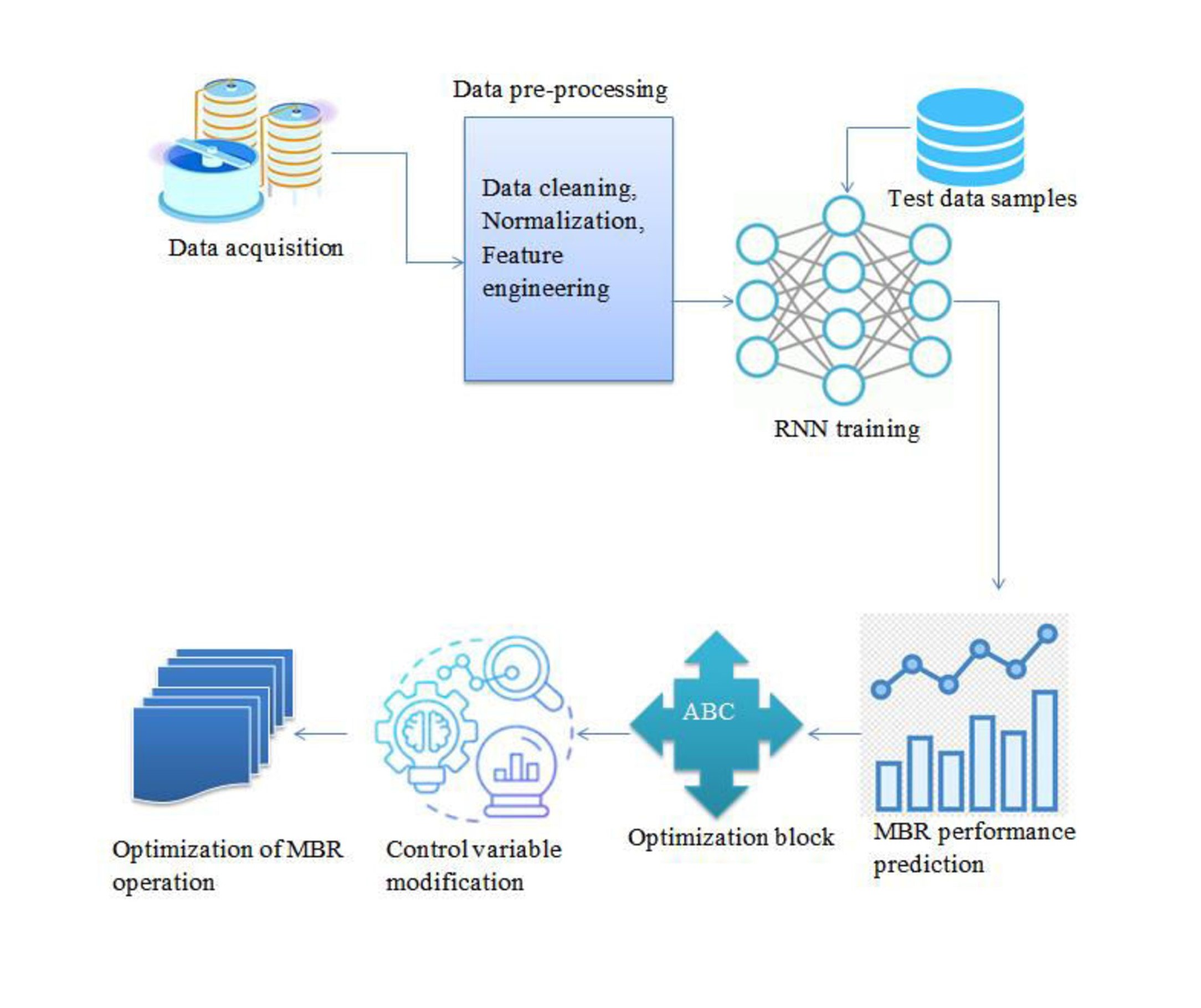
Wastewater includes sewage water, which presents serious environmental problems that necessitate effective treatment techniques. Membrane Bioreactors (MBRs) have emerged as promising solutions, albeit plagued by membrane fouling and computational loading issues. To resolve these issues, this research article presents an innovative control strategy combining both artificial bee colony optimization (ABC) and recurrent neural network (RNN) to regulate the performance of MBR in sewage treatment. Initially, the influent wastewater data was collected and pre-processed using the regression imputation approach. RNN architecture was designed and trained using the pre-processed data to forecast the performance of the MBN system. Further, the ABC algorithm was applied to optimize the function of MBR by adjusting the control variables. The developed model was validated with the publically available wastewater treatment plan dataset and the effectiveness of the developed model was validated by performing intensive performance and comparative assessment. The performance evaluation demonstrates that the proposed methodology attained greater results of 98.59% effluent quality, 98.70% of nutrient removal efficiency, less computational time of 2.87s, and a low membrane fouling index of 1.23%. The comparative analysis illustrates that the presented approach achieved improved performances than the existing methodologies.
Total file downloads: 17